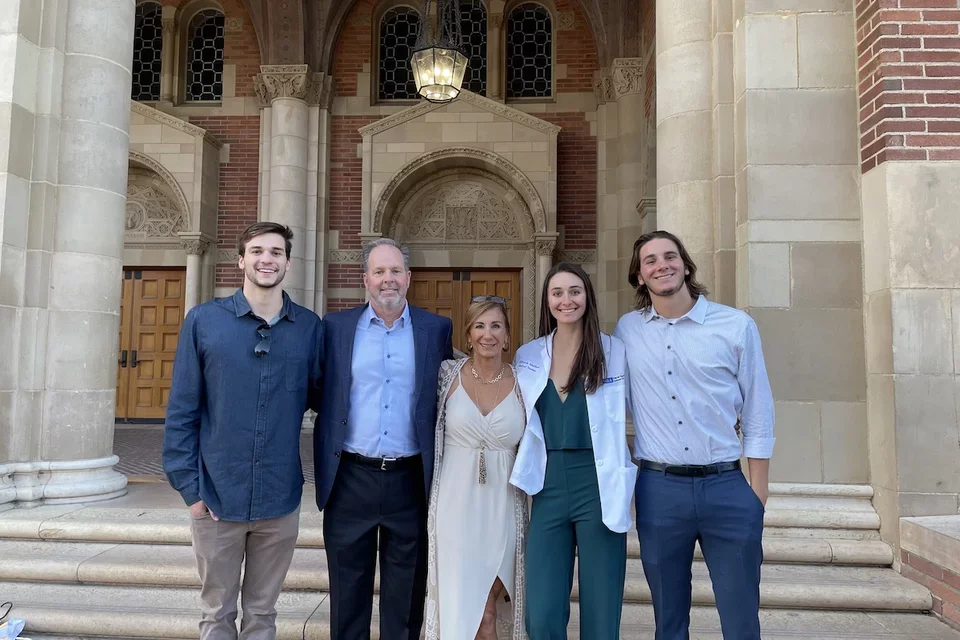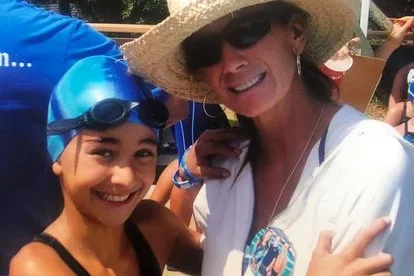Future Physician Looks Forward to Being Vulnerable with Patients
Student Spotlight

Meet Mikayla Mefford
Medical student Mikayla Mefford knew she wanted to become a doctor while watching Alzheimer's disease completely alter her grandfather’s life and personality. Within seven years of his diagnosis, the progressive condition changed him from the active, capable man she knew and loved to someone different.
“Seeing him lose his sense of self and his autonomy over those seven years was intense,” she says. “You sometimes feel like this person you love so much just isn't there anymore.”
Alzheimer’s changed Mikayla’s grandfather, but it also impacted the entire family. This opened her eyes to the ways compassionate medical care can have positive ripple effects on both patients and their loved ones. She found it especially impactful to see her grandfather’s physicians sharing vulnerable moments with the family.
“Having any chronic medical condition can leave people feeling hopeless and alone,” she says. “That kind of vulnerability is the core of human experience. I saw the physicians sharing that with my family, and I thought it would be wonderful to become a doctor and have my own chance to be vulnerable with patients.”
Fun Fact: Mikayla backpacked part of the Camino de Santiago, a pilgrimage route in Northern Spain.

Life as a Med Student
Before starting medical school at the David Geffen School of Medicine at UCLA (DGSOM), Mikayla engaged with a variety of hands-on medical experiences. She participated in research, clinical care, global health initiatives, and special projects with local unhoused communities.
“My research experience led me to apply to medical school.”
Mikayla loves the new knowledge and experience she’s gained since starting med school but finds the relationships she’s formed to be the most fulfilling and rewarding aspect of her time so far at DGSOM.
“Close relationships are priceless,” she says. “Because medical school can be really hard and make you question yourself. Having someone who can understand and also lift you up and validate you when you need it is really valuable.”
Mikayla learned the importance of having a strong sense of community early in life. Growing up, she spent a lot of time at the local swimming pool. Her mother coached swimmers and always brought Mikayla and her siblings along to the pool. Mikayla has fond memories of their pool time, but more importantly, of bonding with her family as well as the broader community.

She loves feeling as supported by her new DGSOM community as she did by her childhood community.
In addition to academic commitments, Mikayla participates in anti-trafficking work with the American Medical Women’s Association’s initiative, Physicians Against the Trafficking of Humans (PATH).
“We do education for health care providers—medical students, doctors, nurses, social workers, and anyone working in the hospital—on how we can best support and care for patients who either have been trafficked or are currently being trafficked.”
She remembers a trafficking incident that rocked her hometown and inspired her to get involved in finding solutions to the broader problem.
“When individuals being trafficked need medical care and enter the healthcare system, medical professionals have a unique opportunity,” she says. “It's a good place to identify those people and try to help them and support them.”
Keeping Patients Top of Mind
When it comes to deciding what kind of doctor she wants to be, Mikayla faces a relatively positive problem. She’s not yet sure what specialty she’d like to pursue—but only because she’s found things to love about so many of them. Orthopedics, emergency medicine, and internal medicine are among the current frontrunners, but she’s committed to staying open minded and seeing where her training path leads her.
She feels confident that whatever she chooses will involve caring for patients and their families throughout chronic illness.

Mikayla advises anyone interested in pursuing a career in medicine to also invest in their own self-worth and in finding fulfillment in areas outside of medicine, publications, and accomplishments.
“We dedicate a lot of time to medical activities and success. They are important parts of our identity, but they fluctuate,” she explains. “It’s important to also invest energy in the way you treat people, interact with people, and the compassion you give.”
She also hopes everyone gives themselves a chance. During her med-school application process, she worried about getting into UCLA. She overcame her reservations and applied anyway. Looking back, she’s stunned to think she almost didn’t even apply.
“Let yourself take every chance,” she says to aspiring med students. “Put the application that makes you nervous out there. You've worked hard, and you deserve to contribute your story and your experience.”
At the end of a long day, when Mikayla feels the pressures of performing in the classroom and in the clinic, she finds it helpful to remember why she wanted to be a doctor in the first place. She thinks about her patients—past, present, and future.
“I think about getting to be with them during these scary moments in their lives,” she says. “I’m so grateful to have the opportunity to do that. It’s a beautiful side of life you don't always get to see beyond the hospital.”



